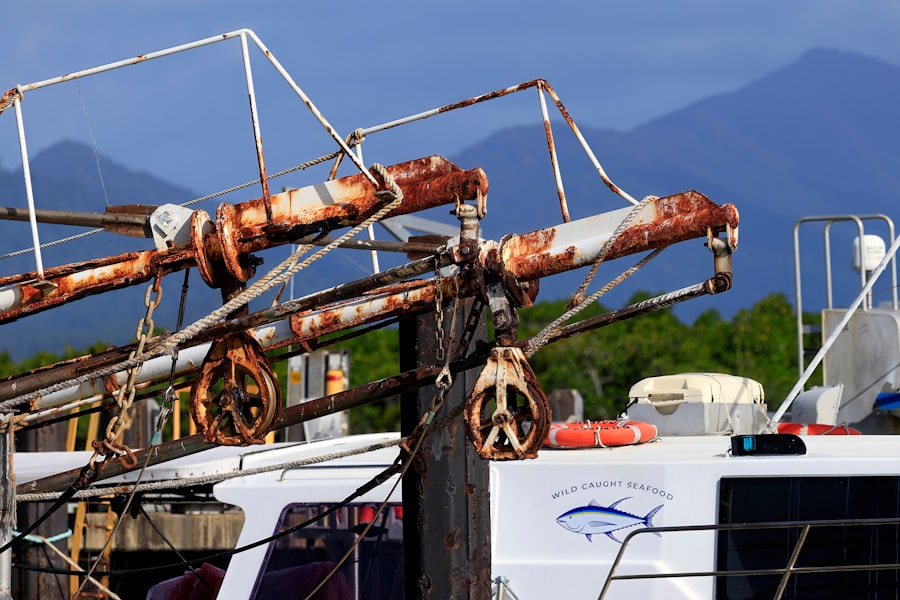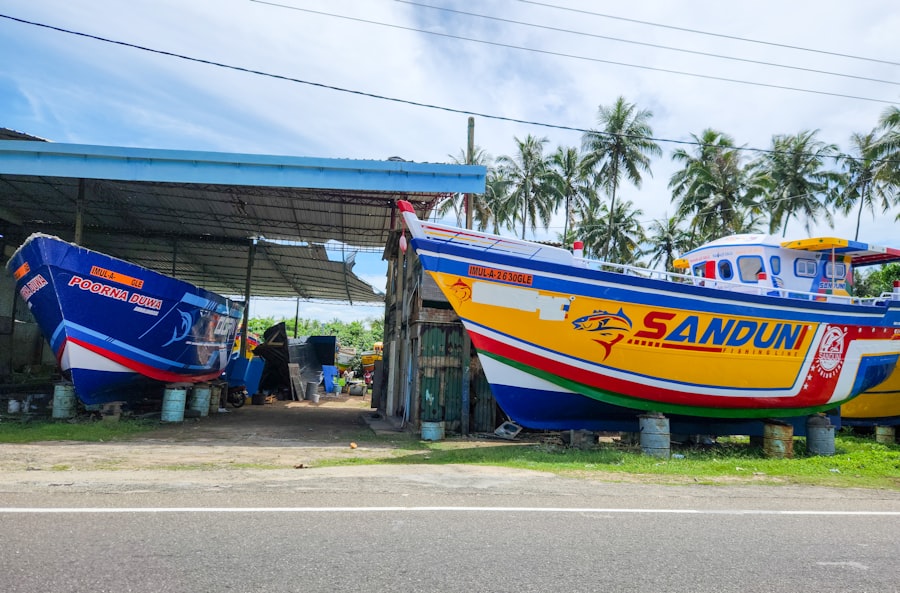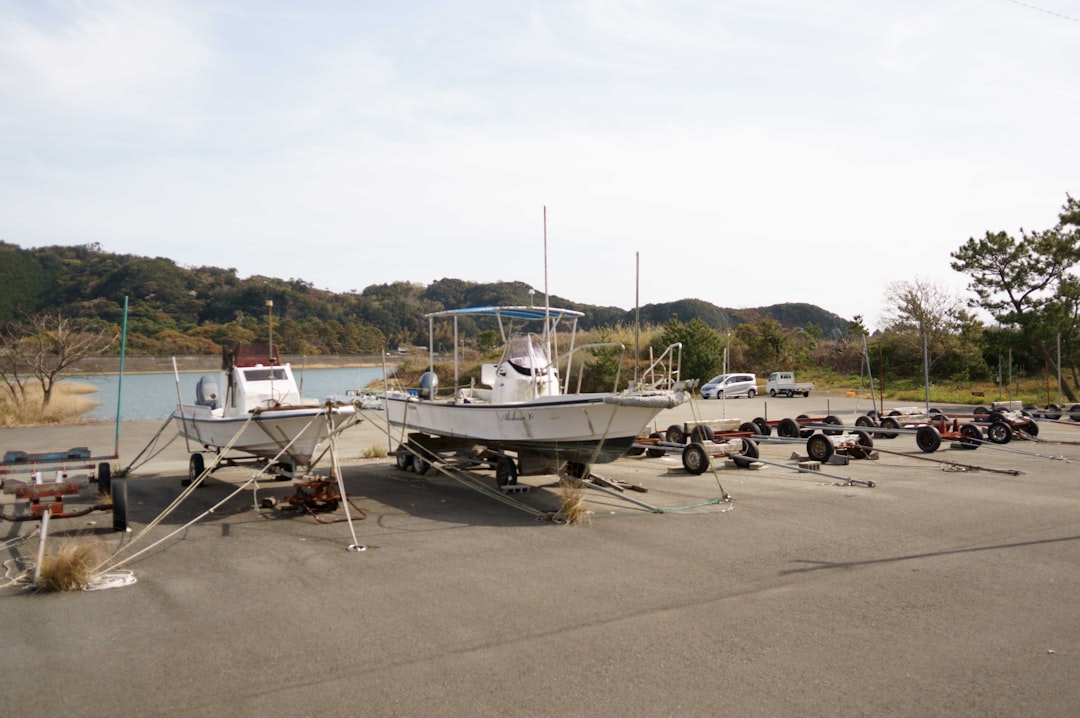The history of tuna trade wars is a complex narrative that intertwines economic interests, environmental concerns, and international relations. The origins of these conflicts can be traced back to the mid-20th century when the global demand for tuna began to surge, driven by its popularity in various cuisines and the rise of canned tuna as a staple food product. As countries recognized the lucrative potential of tuna fishing, competition intensified, leading to disputes over fishing rights and quotas.
The establishment of exclusive economic zones (EEZs) in the 1980s further complicated matters, as nations sought to protect their marine resources while grappling with the realities of overfishing. As tuna became a highly sought-after commodity, trade wars erupted between nations vying for control over lucrative fishing grounds. These conflicts often manifested in the form of tariffs, trade restrictions, and diplomatic tensions.
For instance, countries like Japan, the United States, and various Pacific Island nations found themselves at odds over fishing rights and access to tuna stocks. The situation was exacerbated by the lack of effective international regulations governing tuna fishing, leading to a free-for-all mentality that threatened the sustainability of tuna populations. Over time, these trade wars not only impacted the economies of the nations involved but also raised significant concerns about the long-term viability of tuna fisheries.
Key Takeaways
- Tuna trade wars have a complex history influenced by international organizations and government policies.
- Overfishing driven by technological advances and subsidies has significant environmental and economic consequences.
- Political dynamics and consumer demand play crucial roles in shaping the tuna trade landscape.
- Local fishing communities are deeply affected by the conflicts and regulations arising from tuna trade wars.
- The future of tuna trade depends on balancing sustainable practices, international cooperation, and evolving market forces.
The Role of International Organizations in Tuna Trade
International organizations play a crucial role in regulating tuna trade and addressing the challenges posed by overfishing and trade disputes. Bodies such as the Food and Agriculture Organization (FAO) and regional fisheries management organizations (RFMOs) have been established to promote sustainable fishing practices and ensure equitable distribution of tuna resources among member states. These organizations work to create frameworks for cooperation, setting quotas and guidelines that aim to balance economic interests with environmental sustainability.
One notable example is the Western and Central Pacific Fisheries Commission (WCPFC), which oversees tuna fisheries in one of the most productive regions for tuna globally. The WCPFC facilitates dialogue among member countries, helping to mediate disputes and establish conservation measures. However, the effectiveness of these organizations often hinges on the willingness of member states to comply with regulations and cooperate in enforcement efforts.
As tuna trade wars continue to evolve, the role of international organizations remains critical in fostering collaboration and promoting responsible fishing practices.
The Environmental Impact of Tuna Overfishing

The environmental impact of tuna overfishing is profound and far-reaching, affecting not only tuna populations but also entire marine ecosystems. Overfishing has led to significant declines in tuna stocks, particularly for species such as bluefin tuna, which are highly prized in culinary markets. The depletion of these fish not only threatens their survival but also disrupts the delicate balance of marine life, as tuna play a vital role in maintaining healthy ocean ecosystems.
Moreover, the methods employed in tuna fishing often contribute to environmental degradation. Practices such as longlining and purse seining can result in bycatch, where non-target species are unintentionally caught and discarded. This not only impacts fish populations but also affects seabirds, turtles, and other marine creatures that are vital to ocean health.
The consequences of overfishing extend beyond immediate ecological concerns; they also pose long-term threats to food security for communities that rely on healthy fish stocks for their livelihoods.
The Economic Impact of Tuna Trade Wars
| Metric | Pre-Trade War (Year 1) | During Trade War (Year 2) | Post-Trade War (Year 3) | Impact (%) |
|---|---|---|---|---|
| Global Tuna Export Volume (Metric Tons) | 1,200,000 | 900,000 | 1,050,000 | -12.5% |
| Average Tuna Export Price (per Metric Ton) | 2,500 | 3,000 | 2,700 | 8.0% |
| Revenue from Tuna Exports (Millions) | 3,000 | 2,700 | 2,835 | -5.5% |
| Employment in Tuna Industry (Thousands) | 150 | 120 | 130 | -13.3% |
| Tariff Rate on Tuna Imports (%) | 5 | 20 | 10 | 300% |
| Consumer Tuna Prices (Retail, per Kg) | 15 | 18 | 16 | 6.7% |
The economic impact of tuna trade wars is multifaceted, influencing both global markets and local economies. On a macroeconomic level, fluctuations in tuna prices due to trade disputes can have ripple effects across various sectors, from fishing industries to food processing companies. Countries heavily reliant on tuna exports may experience significant economic strain when faced with tariffs or trade restrictions imposed by rival nations.
This can lead to job losses and reduced income for fishermen and related businesses. At the local level, fishing communities often bear the brunt of these economic shifts. As competition intensifies and access to fishing grounds becomes more contentious, small-scale fishermen may struggle to compete against larger commercial operations that can absorb costs more effectively.
This disparity can lead to social unrest and economic instability within communities that have traditionally depended on tuna fishing for their livelihoods. The interplay between global trade dynamics and local economies underscores the need for policies that support sustainable practices while safeguarding the interests of vulnerable fishing communities.
The Political Dynamics of Tuna Trade Wars
The political dynamics surrounding tuna trade wars are intricate, involving a web of alliances, rivalries, and negotiations among nations. Countries with significant tuna resources often find themselves at the center of geopolitical tensions as they navigate competing interests from both domestic stakeholders and international partners. For instance, Pacific Island nations have sought to assert their sovereignty over their waters while negotiating access agreements with larger fishing nations like Japan and the United States.
These political dynamics are further complicated by issues such as climate change and environmental degradation, which can exacerbate tensions over dwindling fish stocks. As nations grapple with the implications of overfishing and its impact on marine ecosystems, they must also contend with domestic pressures from fishing industries and environmental advocacy groups. The interplay between these various forces shapes the landscape of tuna trade wars, highlighting the need for diplomatic solutions that prioritize sustainability while addressing economic concerns.
The Role of Technology in Tuna Fishing

Technology has revolutionized the tuna fishing industry, introducing new methods that enhance efficiency but also raise ethical questions about sustainability. Innovations such as satellite tracking systems and advanced sonar technology have enabled fishermen to locate schools of tuna with unprecedented accuracy. While these advancements can lead to increased catches and profitability, they also contribute to overfishing by making it easier to exploit fish stocks without regard for ecological balance.
Moreover, technology has facilitated the rise of industrial fishing fleets that operate on a global scale, often outcompeting small-scale fishermen who lack access to such resources. This disparity can exacerbate economic inequalities within fishing communities and lead to further depletion of tuna populations as larger operations prioritize short-term gains over long-term sustainability. As technology continues to evolve, it is essential for stakeholders to consider its implications on both fish stocks and the livelihoods of those who depend on them.
The Impact of Tuna Trade Wars on Local Fishing Communities
The impact of tuna trade wars on local fishing communities is profound, often resulting in economic hardship and social disruption. As larger commercial fleets dominate fishing grounds due to their technological advantages and financial resources, small-scale fishermen find it increasingly difficult to compete. This competition can lead to reduced catches for local fishers, threatening their livelihoods and food security.
Additionally, trade wars can create uncertainty within local markets as prices fluctuate in response to international disputes. Fishermen may struggle to secure fair prices for their catch when faced with tariffs or restrictions imposed by foreign markets. This economic instability can lead to a decline in community cohesion as families grapple with financial stressors related to their dependence on tuna fishing.
To mitigate these impacts, it is crucial for policymakers to implement measures that support local fisheries while promoting sustainable practices that ensure long-term viability.
The Future of Tuna Trade Wars
The future of tuna trade wars remains uncertain as global demand for seafood continues to rise amid growing concerns about sustainability. As countries grapple with the realities of overfishing and its consequences on marine ecosystems, there is an increasing push for collaborative approaches that prioritize conservation over competition.
However, achieving consensus among diverse stakeholders will require navigating complex political landscapes and balancing economic interests with environmental imperatives. The future may also see a shift towards more sustainable fishing practices driven by consumer demand for responsibly sourced seafood.
The Role of Consumer Demand in Tuna Trade Wars
Consumer demand plays a pivotal role in shaping the dynamics of tuna trade wars, influencing everything from fishing practices to international relations. As awareness about sustainability issues grows among consumers, there is a rising preference for ethically sourced seafood products. This shift has prompted many companies to adopt more responsible sourcing practices in response to consumer pressure for transparency regarding fishing methods and environmental impact.
In turn, this evolving consumer landscape can drive changes within the industry itself. Companies that prioritize sustainable practices may gain a competitive edge in the market, encouraging others to follow suit or risk losing customers. However, navigating this transition requires collaboration among stakeholders across the supply chain—from fishermen to retailers—to ensure that sustainability efforts are genuine rather than merely a marketing strategy.
Ultimately, consumer demand has the potential to reshape not only how tuna is sourced but also how nations approach trade relations concerning this valuable resource.
The Role of Subsidies in Tuna Fishing
Subsidies play a significant role in shaping the dynamics of tuna fishing by influencing both production levels and market competition. Many governments provide financial support to their fishing industries through subsidies aimed at promoting economic growth and job creation. While these subsidies can help sustain local fisheries in the short term, they often contribute to overcapacity within fleets, leading to increased pressure on already vulnerable fish stocks.
Furthermore, subsidies can distort market dynamics by enabling larger commercial operations to outcompete smaller-scale fishermen who lack similar financial backing. This imbalance can exacerbate inequalities within fishing communities and hinder efforts toward sustainable practices. As discussions around reforming fisheries subsidies gain traction internationally, it becomes essential for policymakers to consider how these financial incentives impact not only economic viability but also long-term ecological health.
The Role of Government Policies in Tuna Trade Wars
Government policies play a crucial role in shaping the landscape of tuna trade wars by establishing regulations that govern fishing practices and international trade relations. Policies aimed at promoting sustainable fisheries management can help mitigate overfishing while fostering cooperation among nations engaged in tuna trade. However, inconsistent or poorly enforced regulations can exacerbate tensions between countries vying for access to lucrative fishing grounds.
Moreover, government policies often reflect broader geopolitical considerations that influence trade negotiations and alliances among nations involved in tuna fisheries. As countries navigate competing interests from domestic stakeholders—such as fishing industries and environmental groups—they must strike a balance between promoting economic growth and ensuring ecological sustainability. Ultimately, effective government policies will be essential in addressing the challenges posed by tuna trade wars while safeguarding both marine resources and local communities dependent on them for their livelihoods.
Trade wars over tuna fishing have become a significant issue as countries vie for control over lucrative fishing grounds and sustainable practices. A related article that delves deeper into the complexities of this situation can be found [here](https://www.heydidyouknowthis.com/sample-page/). This article explores the economic implications and environmental concerns surrounding tuna fishing, highlighting the challenges faced by nations in balancing their fishing quotas with conservation efforts.
WATCH THIS! The $10 Billion Lie: Why Your “Dolphin-Safe” Tuna Isn’t Safe
FAQs
What are trade wars over tuna fishing?
Trade wars over tuna fishing refer to economic conflicts between countries or regions that impose tariffs, quotas, or other trade barriers on tuna products to protect their own fishing industries or to respond to perceived unfair practices by others.
Why do trade wars occur in the tuna fishing industry?
Trade wars in tuna fishing often arise due to competition over access to fishing grounds, disagreements over fishing quotas, concerns about overfishing, and disputes over trade policies such as tariffs and import restrictions.
Which countries are commonly involved in tuna fishing trade disputes?
Countries with significant tuna fishing industries or interests, such as Japan, the United States, the European Union member states, Indonesia, the Philippines, and Pacific Island nations, are often involved in trade disputes related to tuna fishing.
How do trade wars impact the tuna fishing industry?
Trade wars can lead to increased costs for exporters and importers, reduced market access, disruptions in supply chains, and potential harm to the sustainability of tuna stocks due to changes in fishing practices or enforcement.
What role do international organizations play in resolving tuna fishing trade disputes?
International organizations like the World Trade Organization (WTO), the International Commission for the Conservation of Atlantic Tunas (ICCAT), and regional fisheries management organizations (RFMOs) help mediate disputes, set fishing quotas, and promote sustainable fishing practices.
Are there environmental concerns linked to trade wars over tuna fishing?
Yes, trade wars can exacerbate overfishing and illegal fishing activities if countries prioritize economic gains over conservation, potentially threatening tuna populations and marine ecosystems.
What measures can help prevent trade wars in tuna fishing?
Measures include establishing clear international agreements on fishing quotas, promoting sustainable fishing practices, enhancing transparency in trade policies, and fostering cooperation among countries through multilateral negotiations.
How do tariffs affect the tuna fishing trade?
Tariffs increase the cost of imported tuna products, which can reduce demand, distort market competition, and provoke retaliatory measures from affected countries, potentially escalating trade tensions.
Can trade wars over tuna fishing affect consumers?
Yes, consumers may face higher prices, reduced availability of tuna products, and limited choices due to trade restrictions and increased costs resulting from trade disputes.
What is the significance of sustainable tuna fishing in the context of trade?
Sustainable tuna fishing ensures the long-term viability of tuna stocks, supports the livelihoods of fishing communities, and helps maintain stable trade relations by reducing conflicts over resource depletion.
